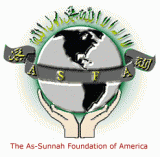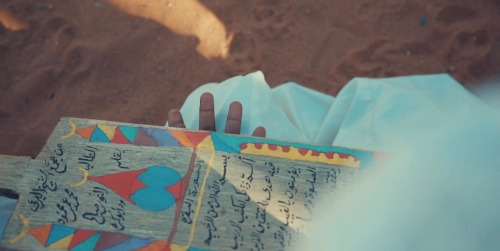Lately a number of western authors and commentators referred to the Treaty of Huydaybiyya – made between Prophet Muhammad and his adversaries, the Quraysh tribe of his hometown Makkah – as something on which Palestine’s leader Yassir Arafat has patterned his peace efforts. Unfortunately, such references have stated more often than not, that the Huydaybiyya Treaty “was a temporary truce that the Prophet Muhammad concluded with the leaders of Mecca, which he subsequently unilaterally violated.”
ISCA is concerned at the repetition of the falsehood that the Prophet Muhammad, peace and blessing of God be upon him, violated the Treaty of Huydaybiyya or intended to do so.
Repeating an error does not make it truth. The Prophet Muhammad, peace be upon him, was honored among his people as the Truthful Trustworthy One. Lying and treachery are character traits inherently abhorred by Islam – a faith built on the highest principles of morality and God-consciousness.
For clarification we will briefly elucidate the actual circumstances of the breaking of the Treaty of Huydaybiyya, of which most westerners may not be familiar.
The treaty was established in the year 628 between the Prophet Muhammad and the Quraysh tribe, rulers of his birthplace Makkah, several years after the Prophet had migrated to the city of Madina to avoid the Quraysh’s vicious persecution of the Muslim faithful.
In Madina the Prophet, having established a city-state ruled by a constitution agreed upon among the local Arab tribes, Jews and Muslims, began to propagate the faith, sending preachers throughout Arabia and nearby lands.
Seeing Islam’s successful rapid growth, the Quraysh time and again sent armies to destroy the fledgling Muslim state, without success.
The Quraysh, fearing the undermining of their prestige and power as custodians of Arabia’s idolatrous religion, by the new monotheistic faith of Islam, continued fighting the Prophet’s new community, but lost a series of decisive battles.
Six years after migration, the Prophet made the decision to make the pilgrimage to Makkah, which years of warfare with the Quraysh had prevented. Despite the Prophet’s willingness to enter Makkah with his companions unarmed, purely for performing the rites of the pilgrimage, the Quraysh refused. The Prophet’s companions urged him to fight if opposed. But the Prophet, always seeking a peaceful solution sought to avoid bloodshed. Instead, at a place known as Huydaybiyya, he agreed to a truce – that he would return to Madina without completing the pilgrimage but would be allowed to make it the following year. Other conditions were extremely humiliating to the Muslims but the Prophet agreed to them in order to avoid bloodshed.
Six years had already elapsed since the Prophet and his Meccan followers had fled from their birthplace. Their hearts began to yearn for their homes and for their Sacred House the Ka’ba. As the season of the pilgrimage approached, the Prophet announced his intention to visit the holy center, and numerous voices of his disciples responded to the call. Preparations were soon made for the journey to Mecca. The Prophet, accompanied by seven or eight hundred Muslims, Emigrants and Ansars, all totally unarmed, set out on the pilgrimage. The Quraysh, who were still full of animosity towards the Muslims, gathered a large army to prevent them from entering Mecca and maltreated the envoy whom the Prophet had sent to ask their permission to visit the holy places. After much difficulty, a treaty was concluded by which it was agreed that all hostilities should cease for ten years; that any one coming from the Quraysh to the Prophet without the permission of the guardian or chief should be given back to the idolaters; that any Muslim persons going over to the Meccans should not be surrendered; that any tribe desirous of entering into alliance, either with the Quraysh or with the Muslims, should be at liberty to do so without disputes; that the Muslims should go back to Medina on the present occasion and stop advancing further; that they should be permitted in the following year to visit Mecca and to remain there for three days. According to the terms, the Arab tribes of the Peninsula were free to choose their allegiance; either to ally themselves with the idolaters or with the Prophet.
The following year, the Prophet made the pilgrimage, according to the terms of the Treaty unopposed by the Quraysh.
Near the end of the seventh year after migration, the Quraysh along with the allied Bani Bakr tribe, attacked the Bani Khuzaah tribe, who were allies of the Muslims. The Bani Khuzaah appealed to the Prophet for help and protection.
This incident directly violated the treaty of Hudaybiyya. The Bani Khuzaah sent a delegation to the Prophet requesting his support. However, even then the Prophet did not act in haste. Instead he sent a letter to the Quraysh demanding payment of blood money for those killed, and a disbandment of their alliance with the Bani Bakr. Otherwise the Prophet said, the treaty would be declared null and void.
Quraysh then sent an envoy to Medina to announce that they considered the Treaty of Hudaybiyya null and void. However they immediately regretted this step – and therefore the leader of Quraysh Abu Sufyan, himself traveled to Madina to renew the contract. Despite having been the greatest enemy of the Muslims, no hand was laid on the man who had been such a source of persecution and harm to them. He was even permitted to go to the Prophet’s mosque and announced that “I am reinstating the Treaty of Hudaybiyya!” – an announcement which went unheeded.
He returned to Makkah in humiliation before his people. It was only after this clear and forthright upholding of the conditions of a treaty whose conditions were utterly humiliating for the Muslims, and only after giving the Quraysh every chance to make amends, that preparation for the retaking of Makkah by the Prophet took place. And that in itself is a story of the great mercy of the Prophet, unparalleled in history.
The Council calls on the media to observer the utmost care in reporting such incidents in history, as slights of this nature are bound to offend the world’s 1.5 billion Muslims, and convey at the same time, a sense of enmity which is not advised in this time of discord in the world. Rather, it is hoped that through the correct telling of history the enmities and discords that prevail today among believers of various faiths will be reduced, laying the foundations for a time of peace and justice.



